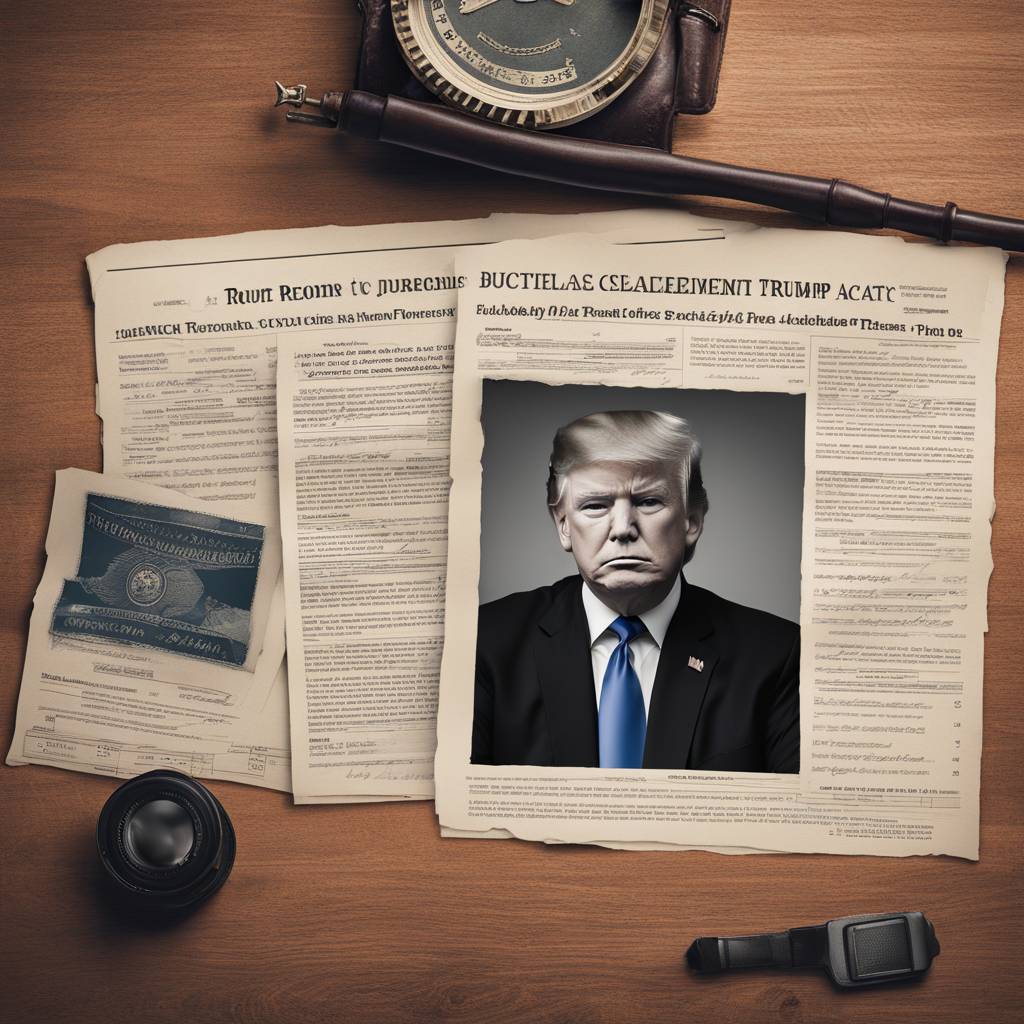A federal judge has denied former President Donald Trump’s attempt to have his classified documents case dismissed based on the Presidential Records Act. Trump’s attorneys argued that he should have custody of the documents even after his presidency due to the act. The judge also denied another motion seeking dismissal based on unconstitutional vagueness and claims of presidential immunity. Special counsel Jack Smith urged the judge to reverse course on proposed jury instructions regarding Trump’s personal ownership of the classified materials, but the judge declined, calling it “unprecedented and unjust.” Trump pleaded not guilty to 37 criminal charges related to the handling of classified materials, denying all charges and denouncing the probe as a political witch hunt.
The former president’s legal team attempted to argue that Trump should have been able to retain custody of the classified documents even after his presidency ended due to the Presidential Records Act. However, the judge denied this argument, as well as other motions seeking dismissal based on various grounds. Special counsel Jack Smith sought to reverse the judge’s decision on proposed jury instructions related to Trump’s personal ownership of the documents, but the judge declined, calling it “unprecedented and unjust.” Despite Trump’s plea of not guilty to 37 criminal counts related to the handling of classified materials, the judge’s decision stands, and the case is set to move forward.
Judge Aileen Cannon took a swipe at the special counsel in her order, criticizing his late filing that urged her to reverse course on proposed jury instructions. Smith had suggested that Trump could claim personal ownership of the classified materials in question, but the judge refused to entertain this idea, calling it “unprecedented and unjust.” The judge also dismissed Smith’s suggestion that he could seek intervention from the 11th Circuit Court of Appeals to order her to clarify her position, stating that parties are free to avail themselves of appellate options as permitted by law. Despite these challenges, the case against Trump for unlawful possession of classified documents is set to proceed.
Trump has pleaded not guilty to 37 criminal counts related to his handling of classified materials and has denounced the investigation as a political witch hunt. The former president is facing charges for allegedly refusing to return hundreds of documents containing classified information, ranging from U.S. nuclear secrets to defense capabilities, and for obstructing government efforts to retrieve the documents. Despite Trump’s denial of the charges, the case is moving forward, and the judge’s decision to deny his motions to dismiss the case based on the Presidential Records Act and other grounds stands. The legal battle over the possession of classified documents continues as the case proceeds to trial.
The judge clarified that her order soliciting preliminary draft instructions on certain counts should not be interpreted as a final declaration on any essential elements or asserted defenses in the case. She emphasized that the request was an attempt to better understand the parties’ positions and the questions to be presented to the jury in what she described as a complex case of first impression. Despite the challenges and disagreements in the case, the judge’s decision to deny Trump’s motions to dismiss based on various grounds, including the Presidential Records Act and claims of presidential immunity, has set the stage for the trial to proceed. The legal battle over Trump’s possession of classified documents continues as the case moves forward in the court system.








